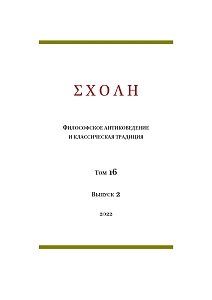The Theological Ontology of Leontius of Byzantium and the Circumscribability Argument in the Iconophile Polemics
The Theological Ontology of Leontius of Byzantium and the Circumscribability Argument in the Iconophile Polemics
Author(s): Vladimir A. BaranovSubject(s): Christian Theology and Religion, Philosophy of Religion, 6th to 12th Centuries, Ontology
Published by: Новосибирский государственный университет
Keywords: Leontius of Byzantium; Maximus the Confessor; John of Damascus; Theodore the Studite; Patriarch Nicephorus of Constantinople; hypostasis; substance; properties; circumscribability;
Summary/Abstract: The theological contribution of Leontius of Byzantium played a crucial role in adapting the notions of substance and hypostasis from their original Trinitarian to a Christological context. The Leontian concepts, such as enhypostasized substance, distinction between the principle of substance and mode of existence, as well as “relational” ontology of reversed unions and distinctions at the levels of substances and hypostases was adopted by Maximus the Confessor and John of Damascus in their polemical application of Neo-Chalcedonian Christology, as well as the by the Iconophiles of the Second Iconoclasm in support of the circumscribability of Christ.
Journal: ΣΧΟΛΗ. Философское антиковедение и классическая традиция
- Issue Year: XVI/2022
- Issue No: 2
- Page Range: 462-481
- Page Count: 20
- Language: English

